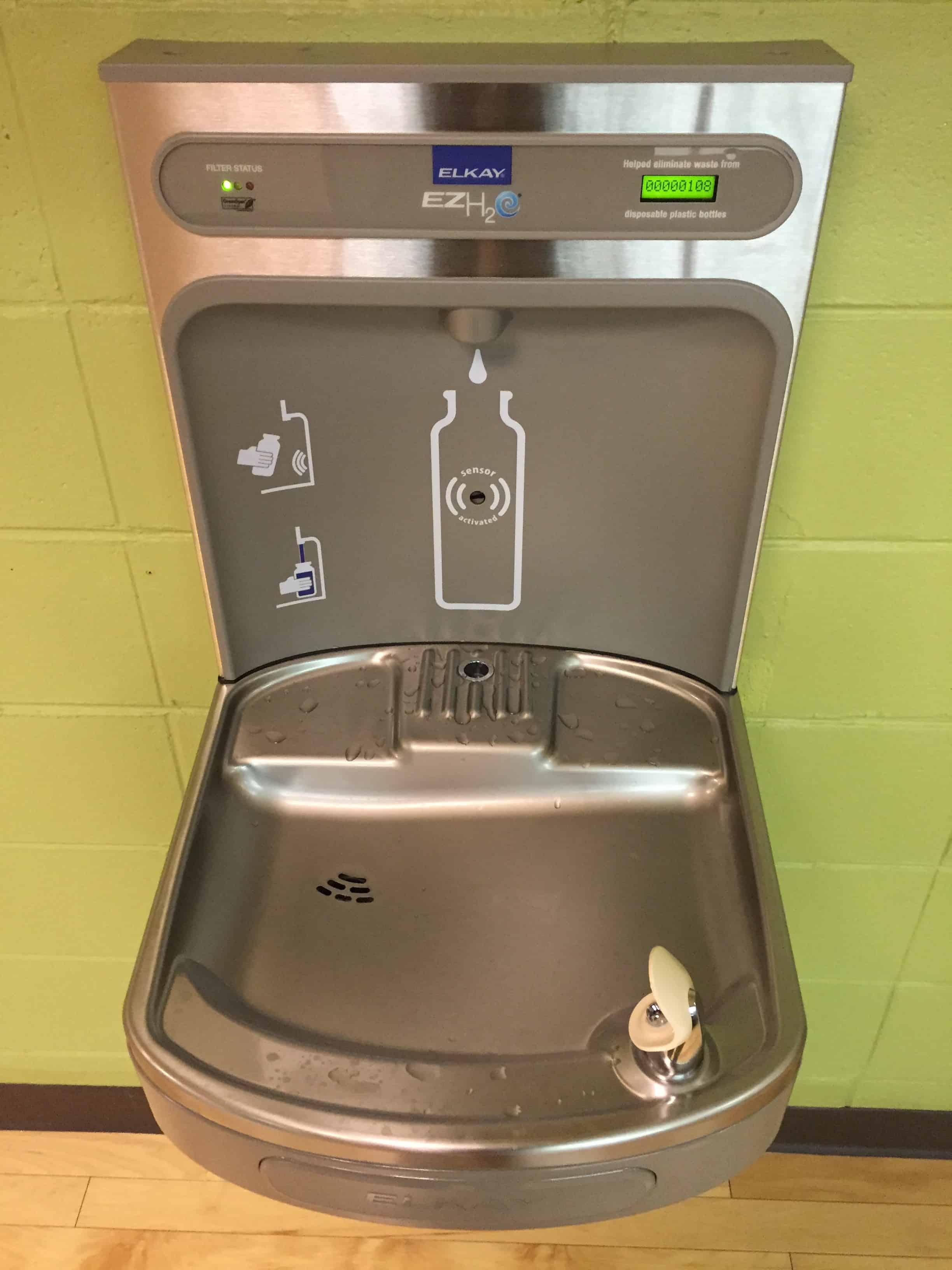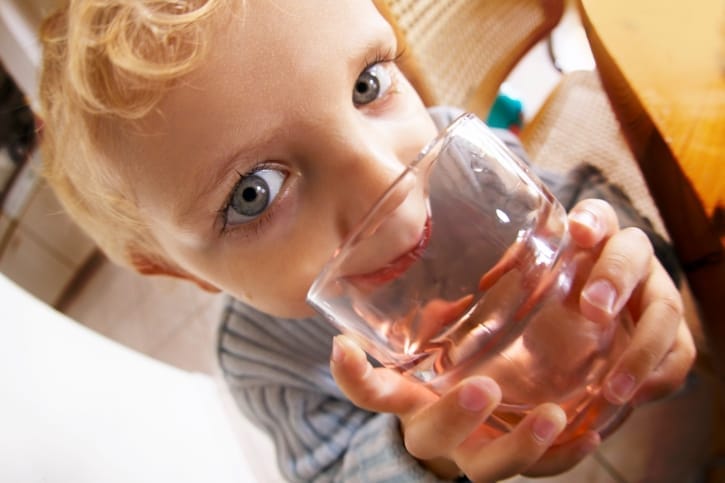
Finding out if you get enough water and why is it important, are the two most compelling questions that surround the issue of fluid intake. Most scientists say that men can average about 15 cups of fluids per day especially in the summer, while women can average about 11 cups. Much of this calculation has to do with the temperature outside and if you are doing your workout outdoors. In this post we’ll discuss how much water you actually need and when, how it relates to weight loss, and some info on water bottles.
It is important to remember that 20% of your fluid calculation comes from the fluid portion of the foods you eat. Think about the fluid in fruits, like watermelon and citrus, and you will realize pretty quickly how this is an important component of your daily intake.
Also, if you engage in an activity that makes you sweat, you will need to drink extra water to compensate for the fluid loss. About 1.5-2.5 cups should suffice for short bouts of exercise and intense exercise lasting more than an hour (running a marathon for example) requires more fluid intake. Often times, when doing intense exercise as in running a race, it may be most important to add a sports drink for added electrolytes and sodium.
Start your day with water
Starting your day with a large 12-16 oz glass of water is a great beginning. It is much like starting your engines for a race. It calls an end to the fasting period created during the night, and it alerts your body that you are ready to get going. Then, if you go on to other beverages such as milk, juice or even coffee, they will all contribute to your fluid base.
Are you drinking enough water?
So, how do you know if you are getting enough? Generally, if you are drinking enough water you generally do not feel thirsty and your urinary output is colorless or light yellow. For most people, dietitians can figure the exact amount of fluids you will need depending upon your exercise, where you live, and whether or not you work out in humid temperatures.
If you would like a schedule of fluids to be recommended to ward off dehydration, it is best to do the following:
- Have a glass of water or other calorie-free drink with each meal
- Drink water before, during, and after exercise
It is unusual to overdo the fluids, but it has happened. Most people’s urinary output is approximately 30 cc/hour (almost an ounce). So, when your kidneys are unable to excrete any more liquid, the electrolyte portion of the blood is diluted, resulting in low levels of sodium in the blood, called hyponatremia. Endurance runners who drink large amounts of water are at a high risk for this condition. The majority of the general population has nothing to worry about though, you just need to be mindful of how your body feels, that’s all.
What if you are looking at water as an adjunct to your weight loss program as well as your fitness workout?
Can drinking more water really help you lose weight? The answer is yes!
If conscious efforts in hydration is new to you and your dietary intake, then this is the situation that will help you the most. It will create a fuller feeling for sure but also create a “downward motion” that moves food along at a more rapid rate.
Water is involved in every cellular process, and as such, bathes the mucous membranes and removes all types of sediment that collects while you are sleeping. The digestive process is also helped by drinking plenty of healthy fluids. You will aid your metabolism this way and most research confirms that this “alertness” or movement on metabolism and digestion may account for 0.5 pounds of weight loss per week!
Beware, don’t use water to “fill up” prior to a meal though! This has never been supported by research, but rather only some dietary programs that suggest drinking fluids keeps you from eating. Today, it is better to recommend water as a part of your fluid balance that contributes to all of the processes that will affect your weight loss.

You may have seen a few of these around the clubs. Now it’s a lot easier to fill your own reusable water bottle.
What about water bottles?
You will see that the water in your bottle can often turn murky, and, yes, best not to drink it. But, what is your healthiest choice for a bottle?
To be environmentally safe, you will want to look into using your own reusable bottle from home. But, don’t use it days on end. Rather, one exercise period and then wash it out well. (Here’s some tricks for washing your water bottle.) Some bottles will measure how much you have had in ounces which can be useful. Others will use a frozen cylinder to help keep your drinks cold.
Depending upon your views, you can use your own reusable bottle each time after it has been thoroughly cleaned or you can use a new bottle each time that you have purchased at the gym. The only point that I will make for you is to recommend that you discard any unused water and throw the disposable bottle away. Just because you have purchased it and there is some left, does not mean that you need to keep it for later.
But why add to our landfills? So, just try to use your own reusable bottle. We understand you may forget every now and then, but let’s make that the exception, not the rule. (Please also make sure the quality of water you are drinking, whether it be bottled or tap, is up to EPA & FDA standards—as unfortunately this is not always the case.)
Flavored waters are also nice. Some companies make these prepackaged flavors: coconut, cactus, artichoke, cucumber, lemon, and maple. Beware of added sugars though! Instead you can make your own! Try these homemade flavored water recipes.
Techniques that will help you change your water “behaviors”:
- Keep a glass of water at your desk each day.
- Keep a glass of water next to your bed.
- Switch one cup of soda or coffee for one glass of water.
- Getting up to go to the copy machine? Have a glass of water.
Use water to your advantage! Let it work its magic for you and it will be a great adjunct to your weight loss program starting today!
Written by Rita Larsen, RDN, CD; Elite Sports Clubs Nutrition Educator & Diet Counselor
Rita is certified in Positive Psychology, University of Penn; has a BS in Dietetics from Kansas State University; and an Internship and Masters at the Indiana University Medical Center.
Schedule a Nutrition Consultation
